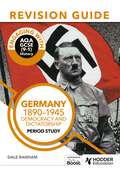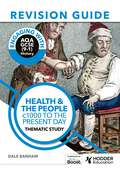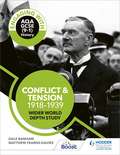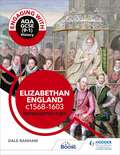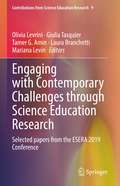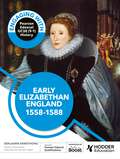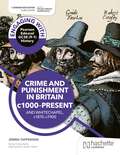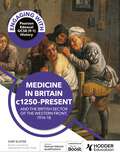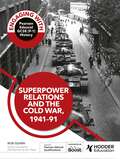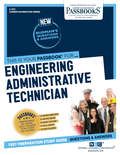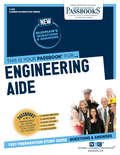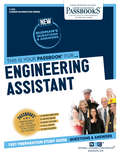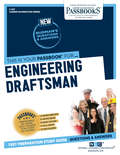- Table View
- List View
Engaging with AQA GCSE (91) History: Germany, 18901945: Democracy and dictatorship Period study
by Dale BanhamExam board: AQALevel: GCSESubject: HistoryFirst teaching: September 2016First exams: Summer 2018Make AQA GCSE History more accessible, enjoyable and manageable, equipping students with the depth of knowledge and complex thinking skills required for exam success.Based on his experience of teaching the specification for two years, renowned author Dale Banham uses the latest thinking on memory and visible learning to raise attainment for students of all abilities.- Engage students with accessible routes into challenging topics: the text is broken down into bullet points and boxes, while stories about interesting people start each chapter, providing a memorable 'hook' for revision- Encourage students to take responsibility for their learning: tasks are structured around five 'steps to success', teaching students how to Research, Summarise, Connect, Apply and Review the content- Make learning stick: techniques such as interleaving, retrieval practice, dual coding and spaced practice help students to remember everything and use their knowledge effectively in the exams- Build top-grade skills: the higher-order thinking skills required to construct complex arguments and reach the upper levels of the AQA mark schemes are carefully modelled, with step-by-step advice- Improve exam results: practice questions, revision tips and guidance based on the examiners' reports are embedded throughout the book, alongside purposeful homework activities for each week- Cover the content in one term: a double-page spread for each lesson and a clear pathway through each unit focuses students on what they really need to know, leaving one final term for revision
Engaging with AQA GCSE (9–1) History Revision Guide: Germany, 1890–1945: Democracy and dictatorship
by Dale BanhamThis is not your average revision guide. They just tell you what to revise. This one teaches you how to revise, too, which is the key to exam success.Based on the latest cognitive science principles and illustrated by lots of visual memory aids, this book makes it much easier to remember everything you need to know and avoid feeling overwhelmed.> Start revising the right way. Testing yourself is proven to boost memory, so you will start each chapter by answering a Knowledge Test, to see what you know and where you have gaps.> Spend time on what matters. Having completed the Knowledge Tests, you can plan a really efficient revision programme, which focuses on your weaker topics and will make the biggest difference to your grade.> Close the gaps. The 'Core Content' pages improve your knowledge of the topics that you need to revise. Research proves that we remember something better if it's presented through text and images, so these pages use bullet points and cartoon memory aids to summarise the important knowledge 'takeaways'.> Show what you know. The 'Exam Practice' pages explain what to do with the knowledge you have gained and how to apply it in the exams. Practice questions and exam tips help you to feel confident answering each question type. Compare your answers to the model answers provided, which highlight the features of excellent responses.> Trust the Dale Banham method. Dale is a highly creative History author and a teacher with over 30 years' experience. Building upon the thinking behind his popular 'Engaging with AQA GCSE History' textbooks, the 'steps to success' in this book give students more support than any other revision guide.
Engaging with AQA GCSE (9–1) History Revision Guide: Germany, 1890–1945: Democracy and dictatorship
by Dale BanhamThis is not your average revision guide. They just tell you what to revise. This one teaches you how to revise, too, which is the key to exam success.Based on the latest cognitive science principles and illustrated by lots of visual memory aids, this book makes it much easier to remember everything you need to know and avoid feeling overwhelmed.> Start revising the right way. Testing yourself is proven to boost memory, so you will start each chapter by answering a Knowledge Test, to see what you know and where you have gaps.> Spend time on what matters. Having completed the Knowledge Tests, you can plan a really efficient revision programme, which focuses on your weaker topics and will make the biggest difference to your grade.> Close the gaps. The 'Core Content' pages improve your knowledge of the topics that you need to revise. Research proves that we remember something better if it's presented through text and images, so these pages use bullet points and cartoon memory aids to summarise the important knowledge 'takeaways'.> Show what you know. The 'Exam Practice' pages explain what to do with the knowledge you have gained and how to apply it in the exams. Practice questions and exam tips help you to feel confident answering each question type. Compare your answers to the model answers provided, which highlight the features of excellent responses.> Trust the Dale Banham method. Dale is a highly creative History author and a teacher with over 30 years' experience. Building upon the thinking behind his popular 'Engaging with AQA GCSE History' textbooks, the 'steps to success' in this book give students more support than any other revision guide.
Engaging with AQA GCSE (9–1) History Revision Guide: Health and the people, c1000 to the present day
by Dale BanhamThis is not your average revision guide. They just tell you what to revise. This one teaches you how to revise, too, which is the key to exam success.Based on the latest cognitive science principles and illustrated by lots of visual memory aids, this book makes it much easier to remember everything you need to know and avoid feeling overwhelmed.> Start revising the right way. Testing yourself is proven to boost memory, so you will start each chapter by answering a Knowledge Test, to see what you know and where you have gaps.> Spend time on what matters. Having completed the Knowledge Tests, you can plan a really efficient revision programme, which focuses on your weaker topics and will make the biggest difference to your grade.> Close the gaps. The 'Core Content' pages improve your knowledge of the topics that you need to revise. Research proves that we remember something better if it's presented through text and images, so these pages use bullet points and cartoon memory aids to summarise the important knowledge 'takeaways'.> Show what you know. The 'Exam Practice' pages explain what to do with the knowledge you have gained and how to apply it in the exams. Practice questions and exam tips help you to feel confident answering each question type. Compare your answers to the model answers provided, which highlight the features of excellent responses.> Trust the Dale Banham method. Dale is a highly creative History author and a teacher with over 30 years' experience. Building upon the thinking behind his popular 'Engaging with AQA GCSE History' textbooks, the 'steps to success' in this book give students more support than any other revision guide.
Engaging with AQA GCSE (9–1) History Revision Guide: Health and the people, c1000 to the present day
by Dale BanhamThis is not your average revision guide. They just tell you what to revise. This one teaches you how to revise, too, which is the key to exam success.Based on the latest cognitive science principles and illustrated by lots of visual memory aids, this book makes it much easier to remember everything you need to know and avoid feeling overwhelmed.> Start revising the right way. Testing yourself is proven to boost memory, so you will start each chapter by answering a Knowledge Test, to see what you know and where you have gaps.> Spend time on what matters. Having completed the Knowledge Tests, you can plan a really efficient revision programme, which focuses on your weaker topics and will make the biggest difference to your grade.> Close the gaps. The 'Core Content' pages improve your knowledge of the topics that you need to revise. Research proves that we remember something better if it's presented through text and images, so these pages use bullet points and cartoon memory aids to summarise the important knowledge 'takeaways'.> Show what you know. The 'Exam Practice' pages explain what to do with the knowledge you have gained and how to apply it in the exams. Practice questions and exam tips help you to feel confident answering each question type. Compare your answers to the model answers provided, which highlight the features of excellent responses.> Trust the Dale Banham method. Dale is a highly creative History author and a teacher with over 30 years' experience. Building upon the thinking behind his popular 'Engaging with AQA GCSE History' textbooks, the 'steps to success' in this book give students more support than any other revision guide.
Engaging with AQA GCSE (9–1) History: Conflict and tension, 1918–1939 Wider world depth study
by Dale Banham Matthew Fearns-DaviesExam board: AQALevel: GCSESubject: HistoryFirst teaching: September 2016First exams: Summer 2018Make AQA GCSE History more accessible, enjoyable and manageable.Based on his own experience of teaching the specification, renowned author Dale Banham knows how to cover the content with the right pace and depth, while also equipping students with the knowledge and 'complex thinking' skills required for exam success.Using the latest research on memory and visible learning, this textbook will help to raise attainment for students of all abilities.- Engage students with accessible routes into challenging topics: the text is broken down into bullet points and boxes, while stories about interesting people start each chapter, providing a memorable 'hook' for revision- Encourage students to take responsibility for their learning: tasks are structured around five 'steps to success', teaching students how to Research, Summarise, Connect, Apply and Review the content- Make learning stick: techniques such as interleaving, retrieval practice, dual coding and spaced practice help students to remember everything and use their knowledge effectively in the exams- Build top-grade skills: the higher-order thinking skills required to construct complex arguments and reach the upper levels of the AQA mark schemes are carefully modelled, with step-by-step advice- Improve exam results: practice questions, revision tips and guidance based on the examiners' reports are embedded throughout the book, alongside purposeful homework activities for each week- Cover the content in one term: a double-page spread for each lesson and a clear pathway through each unit focuses students on what they really need to know, leaving one final term for revisionThe five-term plan is provided FREE for teachers in the Free schemes of work and lesson resources (available on the Dynamic Learning platform), along with editable resources that support the tasks in the textbooks and guidance on using homework effectively.
Engaging with AQA GCSE (9–1) History: Conflict and tension, 1918–1939 Wider world depth study
by Dale Banham Matthew Fearns-DaviesExam board: AQALevel: GCSESubject: HistoryFirst teaching: September 2016First exams: Summer 2018Make AQA GCSE History more accessible, enjoyable and manageable.Based on his own experience of teaching the specification, renowned author Dale Banham knows how to cover the content with the right pace and depth, while also equipping students with the knowledge and 'complex thinking' skills required for exam success.Using the latest research on memory and visible learning, this textbook will help to raise attainment for students of all abilities.> Engage students with accessible routes into challenging topics. The text is broken down into bullet points and boxes, while stories about interesting people start each chapter, providing a memorable 'hook' for revision> Encourage students to take responsibility for their learning. Tasks are structured around five 'steps to success', teaching students how to Research, Summarise, Connect, Apply and Review the content> Make learning stick. Techniques such as interleaving, retrieval practice, dual coding and spaced practice help students to remember everything and use their knowledge effectively in the exams> Build top-grade skills. The higher-order thinking skills required to construct complex arguments and reach the upper levels of the AQA mark schemes are carefully modelled, with step-by-step advice> Improve exam results. Practice questions, revision tips and guidance based on the examiners' reports are embedded throughout the book, alongside purposeful homework activities for each week> Cover the content in one term. A double-page spread for each lesson and a clear pathway through each unit focuses students on what they really need to know, leaving one final term for revisionThe five-term plan is provided FREE online at hoddereducation.co.uk/engaging, along with editable resources that support the tasks in the textbooks and guidance on using homework effectively.
Engaging with AQA GCSE (9–1) History: Elizabethan England, c1568–1603 British depth study
by Dale BanhamExam board: AQALevel: GCSESubject: HistoryFirst teaching: September 2016First exams: Summer 2018Make AQA GCSE History more accessible, enjoyable and manageable.Based on his own experience of teaching the specification, renowned author Dale Banham knows how to cover the content with the right pace and depth, while also equipping students with the knowledge and 'complex thinking' skills required for exam success.Using the latest research on memory and visible learning, this textbook will help to raise attainment for students of all abilities.- Engage students with accessible routes into challenging topics: the text is broken down into bullet points and boxes, while stories about interesting people start each chapter, providing a memorable 'hook' for revision- Encourage students to take responsibility for their learning: tasks are structured around five 'steps to success', teaching students how to Research, Summarise, Connect, Apply and Review the content- Make learning stick: techniques such as interleaving, retrieval practice, dual coding and spaced practice help students to remember everything and use their knowledge effectively in the exams- Build top-grade skills: the higher-order thinking skills required to construct complex arguments and reach the upper levels of the AQA mark schemes are carefully modelled, with step-by-step advice- Improve exam results: practice questions, revision tips and guidance based on the examiners' reports are embedded throughout the book, alongside purposeful homework activities for each week- Cover the content in one term: a double-page spread for each lesson and a clear pathway through each unit focuses students on what they really need to know, leaving one final term for revisionThe five-term plan is provided FREE for teachers in the Free schemes of work and lesson resources (available on the Dynamic Learning platform), along with editable resources that support the tasks in the textbooks and guidance on using homework effectively.
Engaging with AQA GCSE (9–1) History: Elizabethan England, c1568–1603 British depth study
by Dale BanhamExam board: AQALevel: GCSESubject: HistoryFirst teaching: September 2016First exams: Summer 2018Make AQA GCSE History more accessible, enjoyable and manageable.Based on his own experience of teaching the specification, renowned author Dale Banham knows how to cover the content with the right pace and depth, while also equipping students with the knowledge and 'complex thinking' skills required for exam success.Using the latest research on memory and visible learning, this textbook will help to raise attainment for students of all abilities.> Engage students with accessible routes into challenging topics. The text is broken down into bullet points and boxes, while stories about interesting people start each chapter, providing a memorable 'hook' for revision> Encourage students to take responsibility for their learning. Tasks are structured around five 'steps to success', teaching students how to Research, Summarise, Connect, Apply and Review the content> Make learning stick. Techniques such as interleaving, retrieval practice, dual coding and spaced practice help students to remember everything and use their knowledge effectively in the exams> Build top-grade skills. The higher-order thinking skills required to construct complex arguments and reach the upper levels of the AQA mark schemes are carefully modelled, with step-by-step advice> Improve exam results. Practice questions, revision tips and guidance based on the examiners' reports are embedded throughout the book, alongside purposeful homework activities for each week> Cover the content in one term. A double-page spread for each lesson and a clear pathway through each unit focuses students on what they really need to know, leaving one final term for revisionThe five-term plan is provided FREE online at hoddereducation.co.uk/engaging, along with editable resources that support the tasks in the textbooks and guidance on using homework effectively.
Engaging with AQA GCSE (9–1) History: Germany, 1890–1945: Democracy and dictatorship Period study
by Dale BanhamExam board: AQALevel: GCSESubject: HistoryFirst teaching: September 2016First exams: Summer 2018Make AQA GCSE History more accessible, enjoyable and manageable.Based on his own experience of teaching the specification, renowned author Dale Banham knows how to cover the content with the right pace and depth, while also equipping students with the knowledge and 'complex thinking' skills required for exam success.Using the latest research on memory and visible learning, this textbook will help to raise attainment for students of all abilities.> Engage students with accessible routes into challenging topics. The text is broken down into bullet points and boxes, while stories about interesting people start each chapter, providing a memorable 'hook' for revision> Encourage students to take responsibility for their learning. Tasks are structured around five 'steps to success', teaching students how to Research, Summarise, Connect, Apply and Review the content> Make learning stick. Techniques such as interleaving, retrieval practice, dual coding and spaced practice help students to remember everything and use their knowledge effectively in the exams> Build top-grade skills. The higher-order thinking skills required to construct complex arguments and reach the upper levels of the AQA mark schemes are carefully modelled, with step-by-step advice> Improve exam results. Practice questions, revision tips and guidance based on the examiners' reports are embedded throughout the book, alongside purposeful homework activities for each week> Cover the content in one term. A double-page spread for each lesson and a clear pathway through each unit focuses students on what they really need to know, leaving one final term for revisionThe five-term plan is provided FREE online at hoddereducation.co.uk/engaging, along with editable resources that support the tasks in the textbooks and guidance on using homework effectively.
Engaging with Contemporary Challenges through Science Education Research: Selected papers from the ESERA 2019 Conference (Contributions from Science Education Research #9)
by Tamer G. Amin Olivia Levrini Mariana Levin Giulia Tasquier Laura BranchettiThis book starts with the premise that beauty can be an engine of transformation and authentic engagement in an increasingly complex world. It presents an organized picture of highlights from the 13th European Science Education Research Association Conference, ESERA 2019, held in Bologna, Italy. The collection includes contributions that discuss contemporary issues such as climate change, multiculturalism, and the flourishing of new interdisciplinary areas of investigation, including the application of cognitive neuroscience, artificial intelligence, and digital humanities to science education research. It also highlights learners’ difficulties engaging with socio-scientific issues in a digital and post-truth era. The volume demonstrates that deepening our understanding is the preferred way to address these challenges and that science education has a key role to play in this effort. In particular, the book advances the argument that the deep and novel character of these challenges requires a collective search for new narratives and languages, an expanding knowledge base and new theoretical perspectives and methods of research. The book provides a contemporary picture of science education research and looks to the theoretical and practical societal challenges of the future.
Engaging with Pearson Edexcel GCSE (9-1) History: Early Elizabethan England, 1558-88
by Ben ArmstrongTrust the power of cognitive science to help students to understand more, remember more and feel more confident about their exams.This textbook is guaranteed to make learning more effective. The approach was created by author and teacher Dale Banham, who has amazing knowledge of the best teaching methods and over 30 years' classroom experience.> Simplify each topic. The text is broken down into bullet points and boxes. Tasks are structured around the 'steps to success', teaching students how to Connect & Engage, Research & Record, Summarise, Apply and Review their learning> Make learning stick. Cognitive science techniques such as 'interleaving', 'retrieval practice' and 'spaced practice' support students with processing and remembering the course content> Strengthen memory through 'dual coding'. The book contains memory aids that visually summarise key knowledge. Research proves that we remember something better if it's presented through text and images> Improve exam results. The exam skills required to answer each question type successfully are carefully explained. Practice questions, revision tips and guidance based on the examiners' reports are also included> Trust the academic seal of approval. This book has been reviewed by a historian who specialises in the topic, to ensure that the historiography is accurate and up to date
Engaging with Pearson Edexcel GCSE (9-1) History: Early Elizabethan England, 1558-88
by Ben ArmstrongTrust the power of cognitive science to help students to understand more, remember more and feel more confident about their exams.This textbook is guaranteed to make learning more effective. The approach was created by author and teacher Dale Banham, who has amazing knowledge of the best teaching methods and over 30 years' classroom experience.> Simplify each topic. The text is broken down into bullet points and boxes. Tasks are structured around the 'steps to success', teaching students how to Connect & Engage, Research & Record, Summarise, Apply and Review their learning> Make learning stick. Cognitive science techniques such as 'interleaving', 'retrieval practice' and 'spaced practice' support students with processing and remembering the course content> Strengthen memory through 'dual coding'. The book contains memory aids that visually summarise key knowledge. Research proves that we remember something better if it's presented through text and images> Improve exam results. The exam skills required to answer each question type successfully are carefully explained. Practice questions, revision tips and guidance based on the examiners' reports are also included> Trust the academic seal of approval. This book has been reviewed by a historian who specialises in the topic, to ensure that the historiography is accurate and up to date
Engaging with Pearson Edexcel GCSE (9–1) History: Crime and punishment in Britain, c1000–present and Whitechapel, c1870–c1900
by Jemma TappendenTrust the power of cognitive science to help students to understand more, remember more and feel more confident about their exams.This textbook is guaranteed to make learning more effective. The approach was created by author and teacher Dale Banham, who has amazing knowledge of the best teaching methods and over 30 years' classroom experience.> Simplify each topic. The text is broken down into bullet points and boxes. Tasks are structured around the 'steps to success', teaching students how to Connect & Engage, Research & Record, Summarise, Apply and Review their learning> Make learning stick. Cognitive science techniques such as 'interleaving', 'retrieval practice' and 'spaced practice' support students with processing and remembering the course content> Strengthen memory through 'dual coding'. The book contains memory aids that visually summarise key knowledge. Research proves that we remember something better if it's presented through text and images> Improve exam results. The exam skills required to answer each question type successfully are carefully explained. Practice questions, revision tips and guidance based on the examiners' reports are also included> Trust the academic seal of approval. This book has been reviewed by a historian who specialises in the topic, to ensure that the historiography is accurate and up to date
Engaging with Pearson Edexcel GCSE (9–1) History: Crime and punishment in Britain, c1000–present and Whitechapel, c1870–c1900
by Jemma TappendenTrust the power of cognitive science to help students to understand more, remember more and feel more confident about their exams.This textbook is guaranteed to make learning more effective. The approach was created by author and teacher Dale Banham, who has amazing knowledge of the best teaching methods and over 30 years' classroom experience.> Simplify each topic. The text is broken down into bullet points and boxes. Tasks are structured around the 'steps to success', teaching students how to Connect & Engage, Research & Record, Summarise, Apply and Review their learning> Make learning stick. Cognitive science techniques such as 'interleaving', 'retrieval practice' and 'spaced practice' support students with processing and remembering the course content> Strengthen memory through 'dual coding'. The book contains memory aids that visually summarise key knowledge. Research proves that we remember something better if it's presented through text and images> Improve exam results. The exam skills required to answer each question type successfully are carefully explained. Practice questions, revision tips and guidance based on the examiners' reports are also included> Trust the academic seal of approval. This book has been reviewed by a historian who specialises in the topic, to ensure that the historiography is accurate and up to date
Engaging with Pearson Edexcel GCSE (9–1) History: Medicine in Britain, c1250–present and The British sector of the Western Front, 1914–18
by Dale Banham Sam SlaterTrust the power of cognitive science to help students to understand more, remember more and feel more confident about their exams.This textbook is guaranteed to make learning more effective. The approach was created by author and teacher Dale Banham, who has amazing knowledge of the best teaching methods and over 30 years' classroom experience.> Simplify each topic. The text is broken down into bullet points and boxes. Tasks are structured around the 'steps to success', teaching students how to Connect & Engage, Research & Record, Summarise, Apply and Review their learning> Make learning stick. Cognitive science techniques such as 'interleaving', 'retrieval practice' and 'spaced practice' support students with processing and remembering the course content> Strengthen memory through 'dual coding'. The book contains memory aids that visually summarise key knowledge. Research proves that we remember something better if it's presented through text and images> Improve exam results. The exam skills required to answer each question type successfully are carefully explained. Practice questions, revision tips and guidance based on the examiners' reports are also included> Trust the academic seal of approval. This book has been reviewed by a historian who specialises in the topic, to ensure that the historiography is accurate and up to date
Engaging with Pearson Edexcel GCSE (9–1) History: Medicine in Britain, c1250–present and The British sector of the Western Front, 1914–18
by Dale Banham Sam SlaterTrust the power of cognitive science to help students to understand more, remember more and feel more confident about their exams.This textbook is guaranteed to make learning more effective. The approach was created by author and teacher Dale Banham, who has amazing knowledge of the best teaching methods and over 30 years' classroom experience.> Simplify each topic. The text is broken down into bullet points and boxes. Tasks are structured around the 'steps to success', teaching students how to Connect & Engage, Research & Record, Summarise, Apply and Review their learning> Make learning stick. Cognitive science techniques such as 'interleaving', 'retrieval practice' and 'spaced practice' support students with processing and remembering the course content> Strengthen memory through 'dual coding'. The book contains memory aids that visually summarise key knowledge. Research proves that we remember something better if it's presented through text and images> Improve exam results. The exam skills required to answer each question type successfully are carefully explained. Practice questions, revision tips and guidance based on the examiners' reports are also included> Trust the academic seal of approval. This book has been reviewed by a historian who specialises in the topic, to ensure that the historiography is accurate and up to date
Engaging with Pearson Edexcel GCSE (9–1) History: Superpower relations and the Cold War, 1941–91
by Rob QuinnTrust the power of cognitive science to help students to understand more, remember more and feel more confident about their exams.This textbook is guaranteed to make learning more effective. The approach was created by author and teacher Dale Banham, who has amazing knowledge of the best teaching methods and over 30 years' classroom experience.> Simplify each topic. The text is broken down into bullet points and boxes. Tasks are structured around the 'steps to success', teaching students how to Connect & Engage, Research & Record, Summarise, Apply and Review their learning> Make learning stick. Cognitive science techniques such as 'interleaving', 'retrieval practice' and 'spaced practice' support students with processing and remembering the course content> Strengthen memory through 'dual coding'. The book contains memory aids that visually summarise key knowledge. Research proves that we remember something better if it's presented through text and images> Improve exam results. The exam skills required to answer each question type successfully are carefully explained. Practice questions, revision tips and guidance based on the examiners' reports are also included> Trust the academic seal of approval. This book has been reviewed by a historian who specialises in the topic, to ensure that the historiography is accurate and up to date
Engaging with Pearson Edexcel GCSE (9–1) History: Superpower relations and the Cold War, 1941–91
by Rob QuinnTrust the power of cognitive science to help students to understand more, remember more and feel more confident about their exams.This textbook is guaranteed to make learning more effective. The approach was created by author and teacher Dale Banham, who has amazing knowledge of the best teaching methods and over 30 years' classroom experience.> Simplify each topic. The text is broken down into bullet points and boxes. Tasks are structured around the 'steps to success', teaching students how to Connect & Engage, Research & Record, Summarise, Apply and Review their learning> Make learning stick. Cognitive science techniques such as 'interleaving', 'retrieval practice' and 'spaced practice' support students with processing and remembering the course content> Strengthen memory through 'dual coding'. The book contains memory aids that visually summarise key knowledge. Research proves that we remember something better if it's presented through text and images> Improve exam results. The exam skills required to answer each question type successfully are carefully explained. Practice questions, revision tips and guidance based on the examiners' reports are also included> Trust the academic seal of approval. This book has been reviewed by a historian who specialises in the topic, to ensure that the historiography is accurate and up to date
Engaging with Pearson Edexcel GCSE (9–1) History: Weimar and Nazi Germany, 1918–39
by Peter JacksonTrust the power of cognitive science to help students to understand more, remember more and feel more confident about their exams.This textbook is guaranteed to make learning more effective. The approach was created by author and teacher Dale Banham, who has amazing knowledge of the best teaching methods and over 30 years' classroom experience.> Simplify each topic. The text is broken down into bullet points and boxes. Tasks are structured around the 'steps to success', teaching students how to Connect & Engage, Research & Record, Summarise, Apply and Review their learning> Make learning stick. Cognitive science techniques such as 'interleaving', 'retrieval practice' and 'spaced practice' support students with processing and remembering the course content> Strengthen memory through 'dual coding'. The book contains memory aids that visually summarise key knowledge. Research proves that we remember something better if it's presented through text and images> Improve exam results. The exam skills required to answer each question type successfully are carefully explained. Practice questions, revision tips and guidance based on the examiners' reports are also included> Trust the academic seal of approval. This book has been reviewed by a historian who specialises in the topic, to ensure that the historiography is accurate and up to date
Engaging with Pearson Edexcel GCSE (9–1) History: Weimar and Nazi Germany, 1918–39
by Peter JacksonTrust the power of cognitive science to help students to understand more, remember more and feel more confident about their exams.This textbook is guaranteed to make learning more effective. The approach was created by author and teacher Dale Banham, who has amazing knowledge of the best teaching methods and over 30 years' classroom experience.> Simplify each topic. The text is broken down into bullet points and boxes. Tasks are structured around the 'steps to success', teaching students how to Connect & Engage, Research & Record, Summarise, Apply and Review their learning> Make learning stick. Cognitive science techniques such as 'interleaving', 'retrieval practice' and 'spaced practice' support students with processing and remembering the course content> Strengthen memory through 'dual coding'. The book contains memory aids that visually summarise key knowledge. Research proves that we remember something better if it's presented through text and images> Improve exam results. The exam skills required to answer each question type successfully are carefully explained. Practice questions, revision tips and guidance based on the examiners' reports are also included> Trust the academic seal of approval. This book has been reviewed by a historian who specialises in the topic, to ensure that the historiography is accurate and up to date
Engineering Administrative Technician: Passbooks Study Guide (Career Examination Series #C-1271)
by National Learning CorporationThe Engineering Administrative Technician Passbook® prepares you for your test by allowing you to take practice exams in the subjects you need to study. It provides hundreds of questions and answers in the areas that will likely be covered on your upcoming exam.
Engineering Aide: Passbooks Study Guide (Career Examination Series)
by National Learning CorporationThe Engineering Aide Passbook® prepares you for your test by allowing you to take practice exams in the subjects you need to study. It provides hundreds of questions and answers in the areas that will likely be covered on your upcoming exam.
Engineering Assistant: Passbooks Study Guide (Career Examination Series #C-31)
by National Learning CorporationThe Engineering Assistant Passbook® prepares you for your test by allowing you to take practice exams in the subjects you need to study. It provides hundreds of questions and answers in the areas that will likely be covered on your upcoming exam.
Engineering Draftsman: Passbooks Study Guide (Career Examination Series #C-137)
by National Learning CorporationThe Engineering Draftsman Passbook® prepares you for your test by allowing you to take practice exams in the subjects you need to study. It provides hundreds of questions and answers in the areas that will likely be covered on your upcoming exam.

